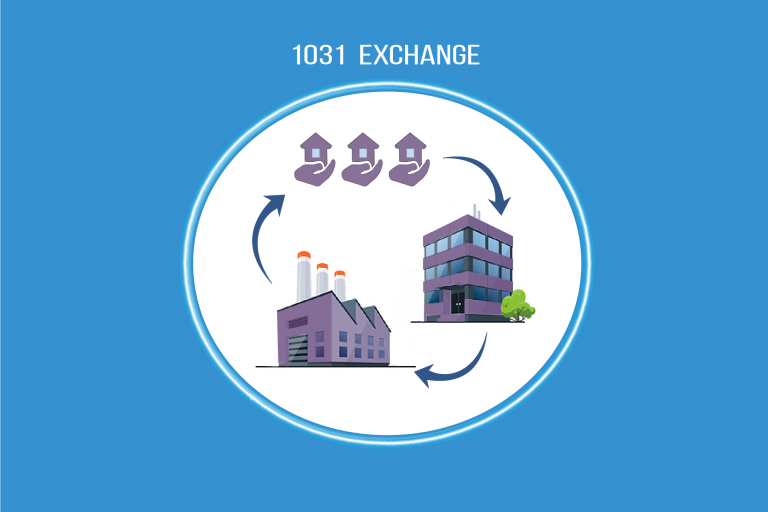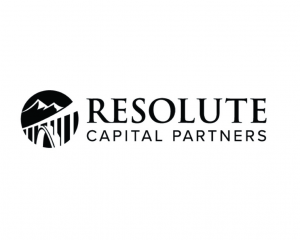Blog
1031 Exchange – What Is It and How Does it Work?

The 1031 Exchange can be a powerful tool to build wealth through commercial real estate, as long as you know the rules. How do 1031 Exchanges work and what do you need to know?
What is it?
The 1031 Exchange takes its name from Section 1031 of the IRS code, which allows investors to defer capital gains tax on the exchange of any “like-kind” property. This allows you to use the full proceeds of a sale of a commercial property for the acquisition of another property. The code gives commercial real estate investors the flexibility to consider changing their investment strategies, and allows them to reinvest capital that would otherwise be paid in capital gains taxes.
What Qualifies for a 1031 Exchange?
The definition of “like-kind” is broad. You are allowed to exchange one investment property for another investment property, and defer the capital gains tax on the sale. For instance, you can swap an apartment building for an office building, or a retail center for a storage facility. As long as the properties are both held for investment purposes or for productive use in a business, they are considered like-kind.
Personal assets, like vacation homes, are not considered like-kind to commercial properties, and properties inside the United States are not considered like-kind for properties outside the US. Common sense can guide you, but always check.
What are the Deadlines? What do I Need to Know?
Investors need to adhere to the timelines involved in 1031 exchanges. Not following the rules, or not meeting deadlines, could mean costly tax penalties.
If you are executing a 1031 Exchange, you must identify a replacement property within the first 45 days after the sale of your relinquished property, and the purchase must close within 180 days.
However, the capital gains are only tax deferred – they are not tax free. An investor can continue deferring capital gains on investment properties in 1031 Exchanges until a property is eventually sold for cash – years, or even decades, after the first swap. This makes the 1031 Exchange especially attractive for estate planning and long-term investment strategies.
How did the Tax Bill Affect 1031 Exchanges in CRE?
The 2017 tax bill did not have any effect on 1031 exchanges with respect to commercial real estate. The legislation preserves section 1031 like-kind exchanges. The plan maintains the tax free like-kind exchanges for investment real estate properties, but eliminates them for personal property exchanges and other asset types.
Avoiding Pitfalls
Make sure you set up the exchange properly. The 1031 Exchange is not only a real estate transaction, it’s also a tax transaction. A real estate attorney or exchange company can help you with the paperwork. Always contact your tax and/or legal advisors for professional advice that is consistent with your personal situation.
Another common pitfall is not identifying a replacement property within 45 days of the sale, which is not a long time in real estate terms. The IRS applies the rules strictly and it is very difficult to get extensions. If you think of the 1031 Exchange more like a swap – rather than a separate sale of one property and a separate purchase of another – you can plan accordingly and take advantage of a long-term wealth-building mechanism.
Plum partner Brevitas is a marketplace of commercial properties for real estate investors. They list inventory by property type, location, and price, and can be a good place to start looking for replacement properties.
If you receive cash, you pay taxes. A requirement of the 1031 Exchange is that you cannot receive or control sales proceeds- only a qualified third party can. You must also invest the total proceeds from the sale of the relinquished property. You will be taxed on any money left over or returned to you.
A Qualified Intermediary (QI) can simplify the exchange process by accepting a transfer of your property, conveying it to a buyer, taking custody of the proceeds, buying the replacement property, and transferring the title to you. Plum partner First American Exchange specializes in these types of exchanges. They can answer any questions that you have. They also have an extensive library of resources to assist you.
Related
Advancements in data science and technology cast a positive light on the global economy and future of humanity in a post-COVID-19 world.
Read More >>Resolute Capital Partners, announced March 31, 2020 the company has joined Elliott Management, a hedge fund manager, and Soft Bank, a high-tech funding firm, by investing alongside them in PLUM® Lending.
Read More >>Earnings growth going into 2020 was soft prior to the COVID-19 shock. While capital markets continue to tumble, PLUM Lending’s balance sheet loan options are here for you.
Read More >>We’re introducing a simple, permanent, fixed-rate, non-recourse loan that can be prepaid at any time. Learn more about our PLUM SELECT loan program.
Read More >>Larger investment in the student housing sector reached a new peak in 2018 and continued its strength, with only a brief slowdown when interest rates rose at the beginning of 2019. Learn more about trends in Student Housing as we look into 2020.
Read More >>CAPABILITIES
COMPANY
© 2022 PLUM Lending. All Rights Reserved. | Terms of Service | Privacy





